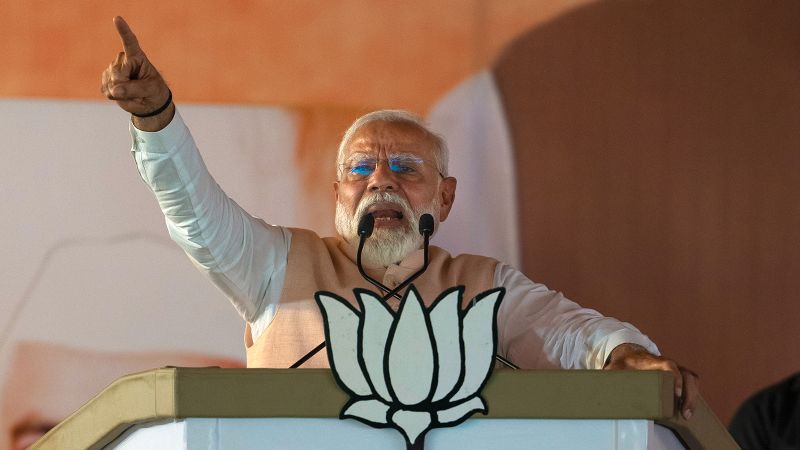The Indian election campaign is the center of attention for the country’s most powerful businessmen, Mukesh Ambani and Gautam Adani, who are closely associated with Prime Minister Narendra Modi and his economic policies. Modi has been highlighting his economic achievements during his past 10 years in office, which have coincided with significant growth for both Ambani’s Reliance Industries and Adani’s Adani Group. Modi has accused his political opponent, Rahul Gandhi, of accepting money from both Ambani and Adani, sparking a heated exchange between the two leaders.
The accusation of financial ties between politicians and businessmen in India is not new, with both Modi and Gandhi leveling accusations against each other. However, neither has provided concrete evidence to support their claims. The issue of political funding came to the forefront when India’s Supreme Court ruled the anonymous donation systems introduced by the Modi government unconstitutional earlier this year. This move highlighted the lack of transparency in political funding and raised concerns about corporations donating large sums without disclosure.
Despite the attention generated by Modi’s accusations against Ambani and Adani, analysts do not expect detailed scrutiny by local media or official investigations. This lack of accountability is attributed to the close ties between legacy media and businesses in India, with many media companies owned by conglomerates with vested interests in the ruling party. Adani’s takeover of NDTV and Ambani’s ownership of Network 18 are examples of how media ownership is intertwined with business interests in the country.
Both Ambani and Adani have gained immense wealth and influence over the past decade, with their conglomerates spanning various sectors vital to India’s economic growth. Adani briefly became the world’s second-wealthiest person in 2022, showcasing his rapid rise in wealth and influence. Despite their success, critics have accused the duo of engaging in crony capitalism and benefiting from their close ties to the ruling party. Adani faced a crisis in 2023 when allegations of fraud were leveled against his group, leading to a significant stock market meltdown.
The relationship between Adani and Modi has faced scrutiny in the past, with allegations of favoritism and political interference. Political leaders from the opposition party raised questions about the ties between Adani and Modi, leading to a backlash against those pursuing the issue. Despite the initial crisis, Adani’s companies have made a remarkable comeback, with shares touching record highs. The ongoing debate surrounding the financial ties between politicians and businessmen reflects the larger issue of crony capitalism in India’s growing economy and the lack of transparency in political funding.













